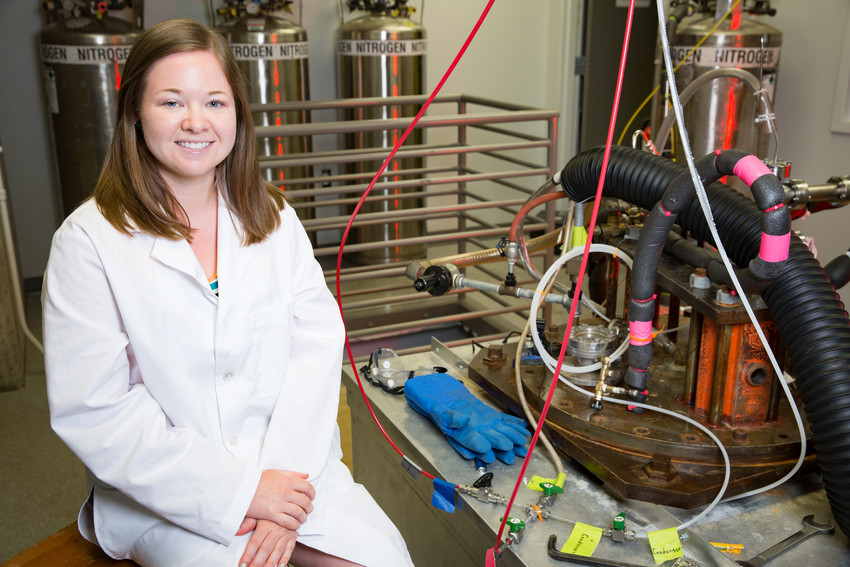
Ellen Czaplinski, a space and planetary sciences doctoral student, has won a NASA Earth and Space Science Fellowship. The fellowship provides Czaplinski with a $35,000 stipend and an additional $10,000 for research expenses. The first-year doctoral student was one of only 33 students in the nation selected for the award, which can be renewed for up to three years.
Czaplinski's research focuses on Titan, Saturn's largest moon. Other than Earth, Titan is the only other body in the solar system with a substantial nitrogen atmosphere. It is also the only other object in the solar system with bodies of liquid on the surface. However, unlike Earth, Titan is exceedingly cold, with surface temperatures measuring at nearly 300 degrees below zero.
"It's so cold that methane and ethane, which are gases at room temperature, are in liquid phase," Czaplinski said.
These liquid hydrocarbons accumulate in basins on Titan's surface, creating lakes and seas of methane, ethane and other minor components. Czaplinski is able to simulate those lakes and seas in the University of Arkansas Titan surface simulation chamber, where she specifically examines what happens when the lakes evaporate.
"It's been proposed that, as the liquids evaporate, the minor components of the lakes could come together in a single phase and create a co-crystal, which is indicative of a new compound forming," Czaplinski said. "I am still analyzing the data to see if any new compounds are forming during the evaporation process."
Understanding the compositional structure of the lakes and seas is important, as future NASA missions to Titan could include sending a boat or submarine for further exploration.
Though just in the beginning stages of her research, Czaplinski's work is already being well-received by others in her field.
"I've been able to present my research at some big conferences, and the feedback has been pretty good," she said. "It's nice to hear my work is valuable in the planetary science field."
A native of Indiana, Czaplinski holds a bachelor's degree in planetary science from Purdue University. She is advised by Vincent Chevrier, an assistant research professor for the Arkansas Center for Space and Planetary Sciences.
Topics
Contacts
Amanda Cantu, director of communications
Graduate School and International Education
479-575-5809, amandcan@uark.edu